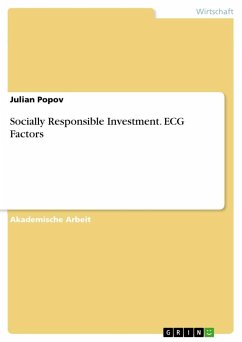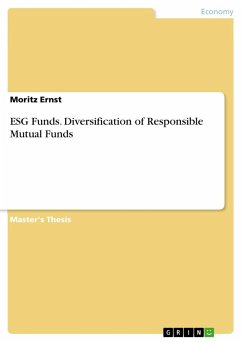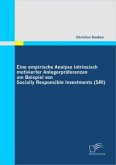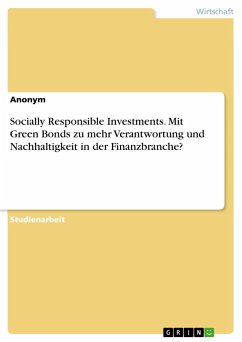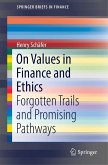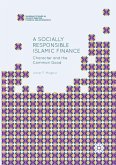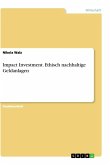Akademische Arbeit aus dem Jahr 2017 im Fachbereich BWL - Bank, Börse, Versicherung, Note: 1.0, Henley Business School University of Reading, Veranstaltung: Topics in Finance, Sprache: Deutsch, Abstract: Investors talk about increasing profits, minimising transaction costs or how to evade taxes most effectively, but very few investors consider if the company contributes something to society, treats employees with respect or tries to reduce harm to environment; in fact - they do not invest socially responsible. But what is socially responsible and how can firms be obtained which make the grade? This essay provides a short overview about the history of Socially Responsible Investing (SRI) and its terminology. Furthermore, different investment strategies are explained in order to understand the depth and the variety of possibilities using these strategies. Knowing these facts, the main reason for investors to invest lies within the nature of things: the return. Every good intention will be flood by the opposite, if the good intention does not perform well and the sinner stocks achieve excess returns. The overall opinion about SRI and the most common theory is that the SRI approach is underperforming the market, as the investor is restricted in stock selection, which decreases the possible level of diversification eventually leading to a lower risk-return level. But do SRI portfolios underperform the market, respectively the "Sin Stocks"? Moreover, this paper tries to use statistical approaches to approve or disapprove the abovementioned theory. By regressing the returns of the biggest social index, the KLD 400, against the returns of the S&P500 and the biggest Sin Stocks Fund, called VICEX, an informed choice will be possible. Furthermore, the investment approaches will be analysed in the overall context of their long-term performance and possible explanations for under- and overperformance. In addition, this essays appendix provides an approach of investing, fulfilling the criteria of SRI and the ESGs, which stands for environmental, social and corporate governance criteria. This project deals with the increasing amount of refugees coming to Germany and the consequent lack of real estate supply. This lack of supply causes difficulties regarding the integration process, which will eventually lead to a separation of the community and increasing appeal of right wing populists.

